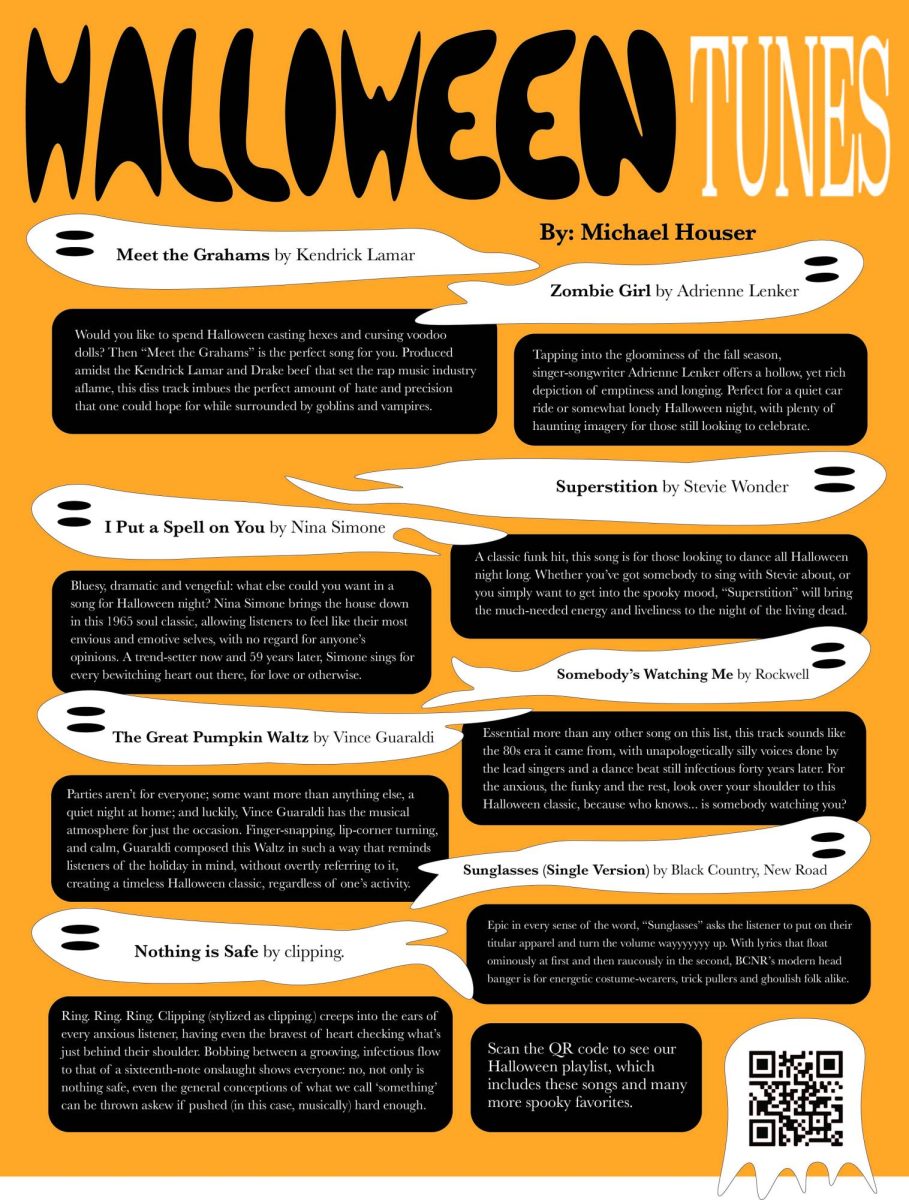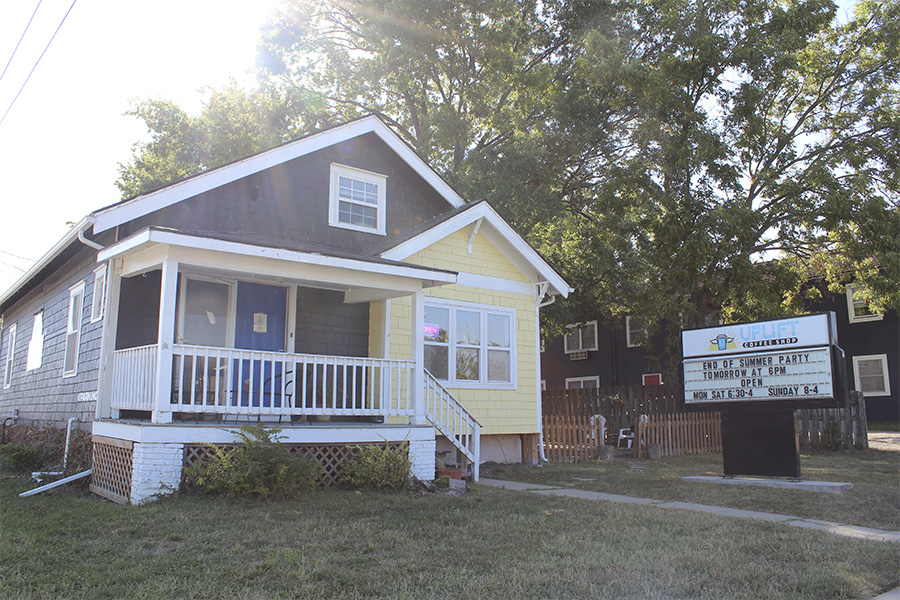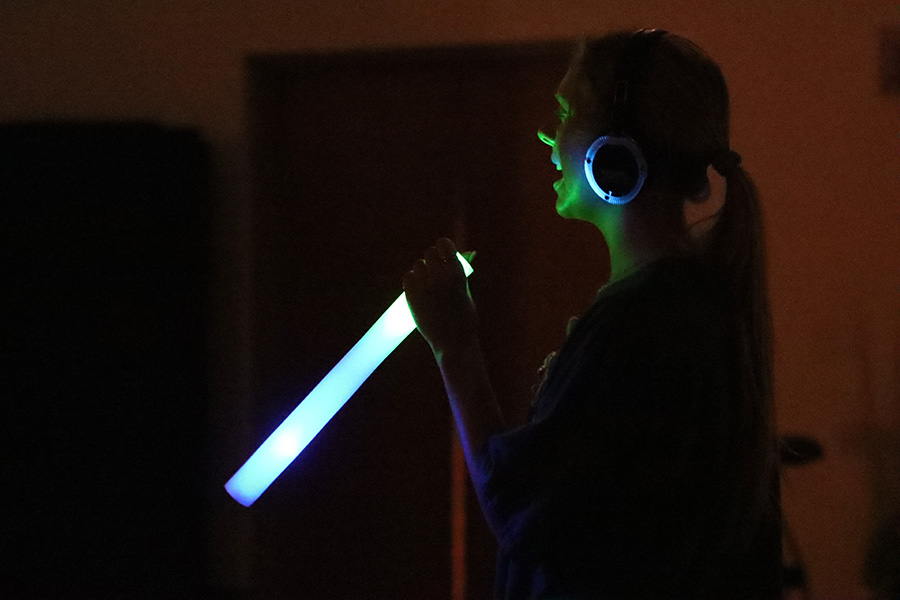"Three years ago, or about that time, the wheels fell off the track, and even we didn't know where the hell we were, quite frankly," Chuck Heath, board of trustees chair of finance, said. "But we do now." <strong>"Three years ago, or about that time, the wheels fell off the track, and even we didn't know where the hell we were, quite frankly," Chuck Heath, board of trustees chair of finance, said. "But we do now." </strong> “Three years ago, or about that time, the wheels fell off the track, and even we didn’t know where the hell we were, quite frankly,” Chuck Heath, board of trustees chair of finance, said. “But we do now.”
Heath’s remarks during the most recent Baker University Board of Trustees meeting illustrate the financial quagmire in which the university has been trapped for the past few years.
Since that meeting – which University President Pat Long said produced a board-approved proposal that outlines Baker’s map for progress – Long has taken advantage of several platforms to inform the BU community of its decisions.
On Oct. 27, at the faculty town hall meeting slated to discuss the general education program, Long divulged Baker’s plans to curb its financial woes, and acknowledged the necessity for reduction and reallocation of faculty members.
RANDY PEMBROOK
Long announced that effective July 1, the provost position, currently filled by Randy Pembrook, will be eliminated.
“Over the next few months our provost will be taking on accountabilities in enrollment management in helping us get ready for HLC (Higher Learning Commission) … and come July 1, we will no longer have a provost position,” she said.
Long told the faculty from the School of Education and the College of Arts and Sciences that Pembrook came to her a few months ago and expressed his concern that Baker could no longer afford a provost.
“He’s been an incredible person throughout this process,” she said. “And over the next few weeks, you’ll hear other administrative changes that we’ll be making.”
Long said she anticipates Pembrook’s next step will be to explore becoming a president at another institution. She believes he is ready for the heightened role.
“He’s done an incredible job at Baker University,” she said. “He’s such a man of integrity. An absolutely fabulous man.”
BAKER DEFICIT
The rolling forecast for the end of the fiscal year, which ends June 30, predicts Baker’s deficit to equal $406,171. Long announced this number could increase, however, if January enrollment projections are not met.
While this deficit seems large, Long was quick to point out that if the university had rolling forecast predictions available last year, and significant cutbacks were not made during the last 12 months, the deficit would have been estimated to be around $4.7 million by the same June 30 deadline.
“When you think of how far we’ve come in a year, thanks to your hard work, we’re making huge progress,” Long said. “But whatever that is, we’ll be able to resolve that.”
The BOT met Oct. 23 and Oct. 24 and decided on two absolute resolutions. The first resolution stated the BOT is resolved to take the actions necessary to deliver a balanced budget for 2009-10.
“This is not going to be easy because we have already cut and cut and cut,” Long said.”When we think about cutting more … it is going to be hard, but we have to do it.”
The BOT decided to start the reduction process by asking those who are 59 1/2 or older and have worked at Baker for more than 10 years to consider early retirement. If those faculty members retire at that time, they will receive an unspecified retirement incentive.
“We know of one person that has decided to do that,” Long said, although she declined to say who it was.
She also said she knows of others who are considering this option. Faculty members who meet these criteria have a Nov. 15 deadline for response.
Additionally, BU will see a continued reduction of the workforce by continuing the hiring freeze and by leaving three positions vacant.
“There is one position on this campus and two at (the School of Professional and Graduate Studies),” Long said of the openings.
The upper-level administration also has voluntarily taken a second salary reduction to help bring the university out of the red.
All of these reductions total around $700,000 for this year.
The second resolution the BOT has prepared is to reposition the university by building future budgets that include a contingency fund, short-term debt control – which Baker has accumulated too much of over the past few years – and capital-planning teaching initiatives.
“This is where we say by (2011-2012) we can be at a place where we don’t need to talk about a place where we suspend retirement, or that salaries can’t be raised, or professional development can’t happen,” Long said.
“For us to move forward, and be ‘one Baker’ that we want to be, we don’t want to just string along. This is the change we need to make.”
JOINT COMMITTEE
A joint committee that combines the efforts of the Academic Program Review committee, the Education Programs Committee and the Faculty Development and Evaluation committee is in the process of assessing programs to help determine which are the most cost- effective.
Long set a deadline of Dec. 15 for the committee to review the programs and provide feedback. With the information provided by this group, Long – who is ultimately responsible for making the decisions to discontinue programs – should be better equipped to do so.<br/>&#160;






